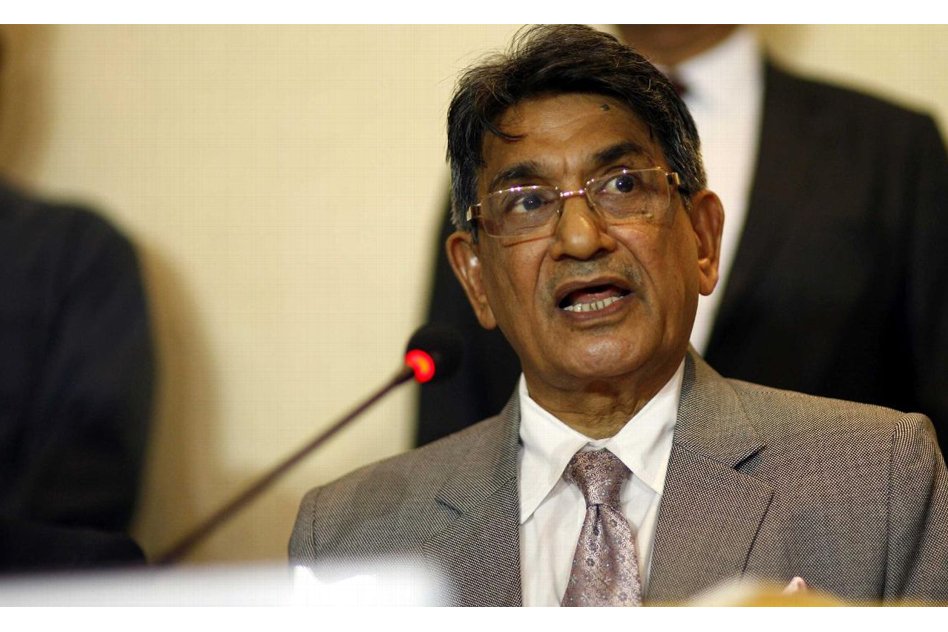Image Courtesy: espncdn
The Supreme Court appointed Justice Lodha committee on BCCI reforms submitted its report to the SC on Monday (January 4). The report suggested a complete overhaul of existing structure and functioning of BCCI. The recommendations of the committee are bitter pills for BCCI to swallow.
Background:
The Supreme Court of India, while examining “The 2013 IPL Spot-Fixing Case” in January 2015, had asked the Panel comprising the former Chief Justice of India, Justice Lodha, and judges Ashok Bhan and RV Raveendran to determine punishment for Chennai Super Kings (CSK) and Rajasthan Royals (RR) for their officials’ involvement in betting activities. The panel was also given the task of examining and making recommendations to the Board of Control for Cricket in India (BCCI) for reforms in its practices and the way it is being run.
What else did the committee do?
In July 2015, the panel suspended the two franchises of CSK and RR for two years. The two teams will not feature in IPL 2016 and 2017.
Key recommendations:
Sayonara Politicians: Regardless of post- president, secretary, joint secretary, vide-president, and treasurer, no official can hold on to any seat for more than nine years in all. None of the above positions can be held by ministers, government officials, and members of state associations. This would mean removal of many veteran politicians who are currently enjoying various positions on the Board.
Separating IPL from BCCI: To bring in more efficiency and accountability to IPL, the “cash cow” for BCCI, the committee suggested separate governing body for IPL, which will also have a nominee of the Comptroller and Auditor General (CAG). This will ensure that IPL doesn’t go beyond legal outreach.
Representation for women: It is mandatory that the apex council should have a woman in it. This will surely help women’s cricket. But the women representative would have even more powers, thus would help in curbing wrong practices in the “old boys’ club”.
Representation for cricketers: The committee proposed formation of a Players’ Association which will be represented in the apex governing body. Thus, cricketers will also have a say in the Board’s functioning. All cricketing decisions should be made by committees headed by former cricketers.
Transparency: To bring in effect to the much needed cry for transparency in BCCI functioning, the committee suggested bringing it under the Right to Information (RTI) Act. Since BCCI performs public functions, people have the right to know its functioning.
Administrative changes: Appointment of a CEO accountable to an apex governing council. The CEO will have a team of professionals working under him/her. This will add the much needed professionalism to the BCCI. The BCCI president shall have no voice in selection of players.
State Cricket Associations: The report proposes “one-state, one-vote” policy, which means that a state shall have only one representative in BCCI, irrespective of number of associations in the state. E.g. Maharashtra and Gujarat have 3 associations within their purview. This will in effect mean one-state, one-cricket body. [This may even cause the current president Shashan Manohar to lose voting right, since he represents Vidarbha]. Moreover, a BCCI office bearer cannot be a state cricket association office bearer at the same time. Other associations like Railways and Services will be made members without the right to vote.
Legalizing betting:
However, the most sensational and revolutionary suggestions comes in form of urging the Legislators to legalize betting in cricket. However, cricket players, officials and administrators should not be allowed to bet. The committee asked the lawmakers to allow people bet on registered websites. This would help curb corruption in cricket.
Experts and people manning illegal betting outfits say that the Government can earn as much as Rs 10,000-12,000 crore (assuming 30% rate of taxation on earnings) if betting is made legal. This huge sum can be well utilized for social welfare schemes by the government.
There is no law in India which explicitly declares betting in sports as illegal. The states of Goa and Sikkim allow betting and gambling. In many of the western countries including the UK and the US, betting in sports is legal.
Outright ban on betting pushes the industry to underground, which aggravates the issue, given the crimes which eventually get associated with it. Strict legal regulation can reduce bad practices along with generating revenue for government.
Anything good for BCCI?
The committee commended the “good work” done by the BCCI, indicating the pension scheme for national players.
Will the Committee’s recommendations be binding on BCCI?
The recommendations relating to reforms in the BCCI are not per se binding and the Board may opt not to accept some or all of them. The BCCI has said that these are just recommendations and it would now form its own committee to look into the proposals before deciding on future course of action. Some of the existing officials even questioned the feasibility of the proposals.
What is the legal sanctity of the report?
The Committee is a high-power panel set up on the orders of the top court. This report will be taken up by a bench led by Justice T S Thakur at a later date. BCCI may be given an opportunity to respond to the panel’s plea but if the court agrees with the Committee and passes some orders, it becomes binding on the Board.
What if BCCI does not accept some recommendations?
The matter has been taken to the apex court by the Cricket Association of Bihar (CAB). Hence, if the BCCI rejects some recommendations of the Lodha Committee, CAB will certainly raise its contentions before the bench and the issue will become subject to the orders of the court once again. Therefore, in all circumstances, the final word on the recommendations will be of the Supreme Court.
– Sachin Jadhav











